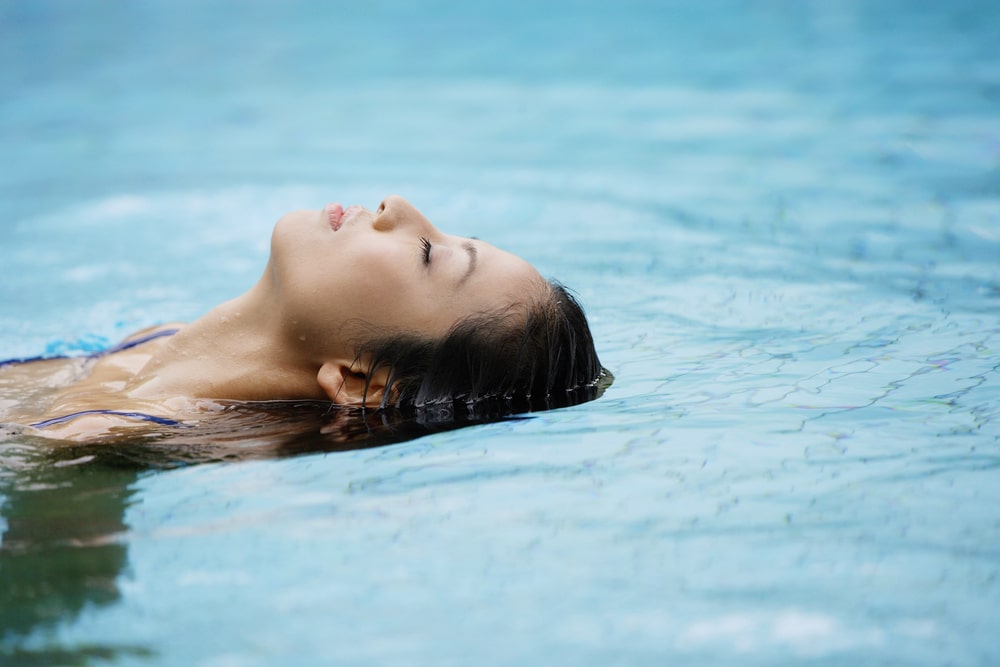Sunburns are never fun. The bright red lobster skin is unsightly and painful—but even worse, it can cause long-term damage to your skin and increase your risk of skin cancer.
Sun safety is not something to take lightly, especially when you're spending time outdoors and in bodies of water, like pools, lakes, and oceans, as ultraviolet (UV) rays are stronger when reflected off the water. Find out why and how this happens, and what you can do to stay safe this summer and beyond.
Can You Get Sunburn from Water Reflection?
When you're near or in a body of water, the sun is shining down on you from above, but it's also shining off the surface of the water and reflecting back at you. According to Cancer Research UK, about 10 percent of UV rays are reflected off of the water.
This is called reflected light, and it enhances your exposure to the sun. So, can you get sunburn from water reflection? The answer is yes, you can. This reflection makes the sun's rays even stronger, so the effects on your skin are both felt and seen faster. What's more, sand also reflects UV rays, according to the Skin Cancer Foundation, so it's important to stay covered or use an umbrella on the beach.
Even if you're not physically in the water, being near it puts you at risk of burns from water reflection. So, if you often enjoy activities like fishing, boating, stand-up paddleboarding, kayaking, surfing, parasailing, jet-skiing, and more, you should take extra precautions. Before heading out, grab a wide-brimmed hat, sun-protective clothing, and sunglasses—in addition to your favorite sunscreen.
Most people are used to wearing sunscreen during the summer months, but what about the colder months? Reflection is still a risk in the winter, as sunlight reflects off of snow in the same way it does water (but at a higher rate). So, if you're ice fishing, skiing, snowboarding, or ice skating, practice the same level of caution as you do in the summer.
Does Water-Resistant Sunscreen Really Work?
First, it's important to know that there's no such thing as waterproof sunscreen. All sunscreen products eventually become inactive when wet. Luckily, for those days spent wading in the ocean or taking a dip in the pool, there are certain sunscreens that are specifically formulated to remain effective for a time on wet skin. These are labeled as water-resistant sunscreens.
The FDA has a set of guidelines for testing water-resistant sunscreen, and it must be stated on the label if it's water-resistant for 40 or 80 minutes. EltaMD UV Active Broad-Spectrum SPF 50+ is a physical sunscreen that's water-resistant for up to 80 minutes, so it won't rinse off in the water or run into your eyes while you're swimming or sweating. EltaMD UV Sport Broad-Spectrum SPF 50 uses a mix of physical and chemical filters to provide sun protection while swimming for up to 80 minutes.
These products are great options for a little extra protection on long beach days, but you should apply and reapply regularly and after towel drying. Make sure your skin is totally dry before applying sunscreen, then wait at least 15 minutes before jumping back into the pool.
How Do You Stay Safe from Water Reflection?
The two biggest factors to protect your skin from UV rays in water reflection are using (and reapplying) water-resistant sunscreen and keeping your skin covered. But, keep in mind that water reflection can reach those tricky areas of your skin you may think are covered, like under your chin, the back of your hands, top of your feet, back of your knees, your neck, scalp, ears, and more. Pay a little extra attention to these areas next time you're slathering on the sunscreen.
If you're outside, you're at risk of sun exposure, so it's best to wear sunscreen every single day. After all, no one wants to get a painful, blistering sunburn! And if you're not sure which sunscreen to choose, chat with the EltaMD Elysebot to find the perfect product for your skin. When you love your sunscreen, you'll never want to go without it.
